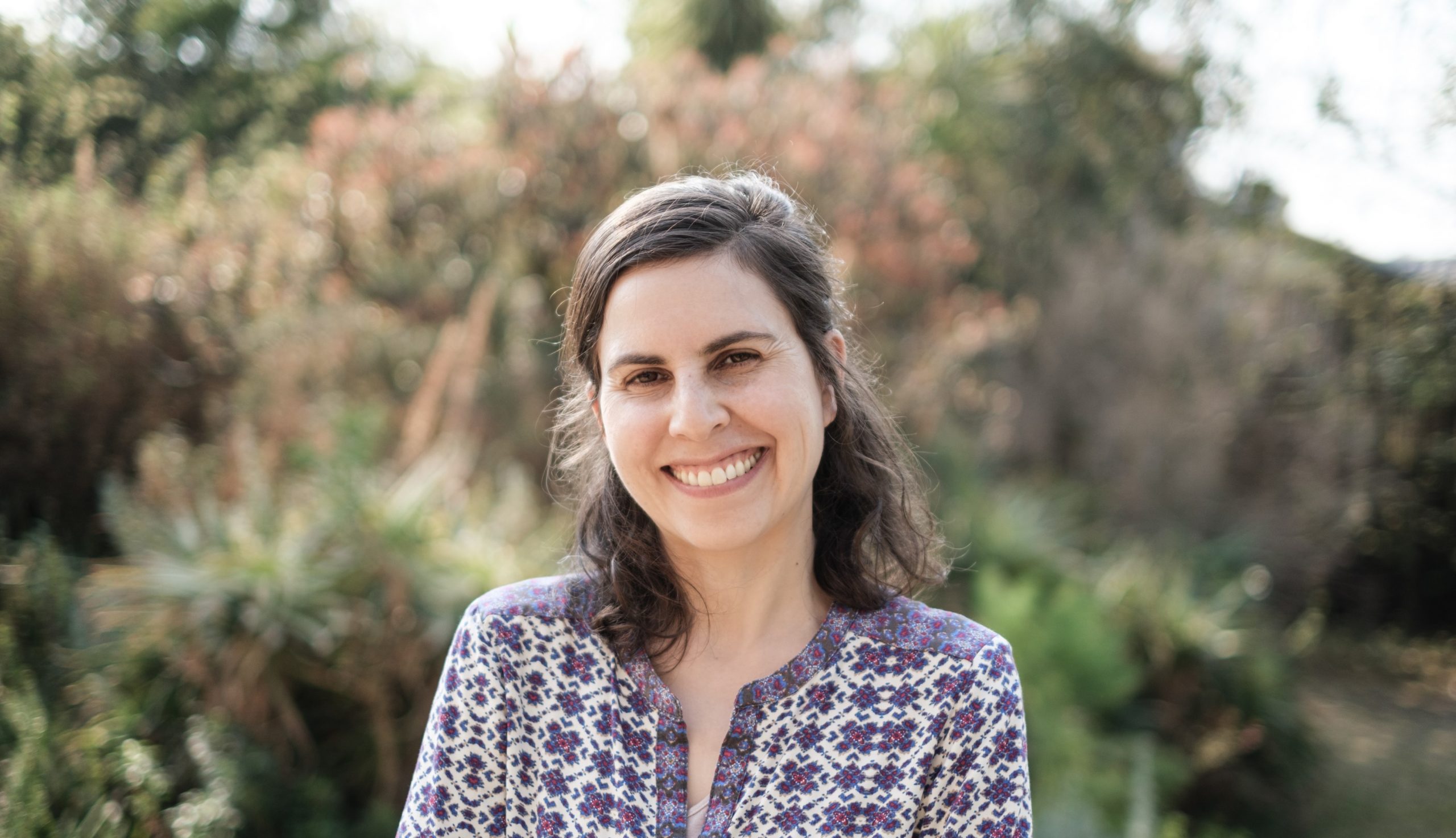My grandparents married in August 1950. They had a small civil ceremony in London, where they were living at the time as my grandfather was specializing in paediatrics. My grandmother had been previously married and divorced, which was scandalous then, and worse, she was pregnant with my mother at her second wedding.
She looks happy in the photograph of them in my mother’s album. She’s wearing a light-coloured dress with white polka dots, and there are flowers in her hair. She smiles and gazes lovingly at her new husband, whose hands are clasped casually on top of the signed registry book. He looks greener than her, maybe a little intimidated, but full of promise and devotion.
In later photographs, my grandfather appears more debonair and surer of himself. In one, he is reclining languidly in an upholstered armchair, his legs crossed, and a cigarette in his hand. He’s wearing a tie and a blazer with a medal pinned to it—I remember he used to play bowls. He looks suntanned and relaxed.
Then I see a photograph of my grandmother wearing a fur coat and hat, and large, blossom-shaped clip-on earrings. The photograph seems staged as she’s looking off to the side and clasping the coat’s collar. She was an only child, my grandmother, and her mother owned a ladies’ boutique in Eloff Street, where women would buy their wedding trousseaus.
Read – A Silent Battle Called Grief – A Creative Non-Fiction by Catherine Kuria – Kenya
Both my grandparents were the children of immigrants from Lithuania. My grandmother’s father was one of ten siblings who escaped the Cossack persecution, seeking freedom and safety in South Africa. My great-grandfather, the second youngest boy, boarded a ship bound for the Cape Coast when he was 11 years old in the first part of the 20th century. His elder brother had come to the country first and he brought the rest of the family out after him. My great-grandfather met and married my great-grandmother, who had moved earlier with her family to Johannesburg.
My grandfather’s mother grew up in Plungyan. Every Friday, she would walk from village to village selling kitkas baked by her mother for the Sabbath. She was literate and would be asked to read letters sent to the villagers who couldn’t read themselves. My grandfather’s father came to South Africa as a young man to fight on behalf of the Boers in the Boer War. He returned to Memel, a port city in Lithuania, and married my great-grandmother. The family immigrated when my grandfather, their first child, was two years old.
I never knew my grandfather’s parents. They died before I was born, and I was named after my great-grandmother. She stands sweetly in a striped dress and pearl necklace next to my grandmother in one photograph. She had a beautiful face, and my mother resembles her, with her curly hair and delicate but compelling countenance. My mother remembers her grandmother always wearing a hat and high heels to disguise her tiny stature: at 144cm, she was the pudding sandwiched between them. My great-grandfather owned a bicycle shop. They were very poor, but he had a brilliant mind, especially for mathematics, and his wife encouraged him to go into bookkeeping. She helped him with his work, looked after their small house in Bez Valley, and was a wonderful cook.
I Do Not Pity You – A Creative Non-Fiction by Arike Priscilla – Nigeria
I distinctly recall my grandmother’s parents. Her father was over 182cm tall, slim, and had a head full of white hair, which was once black, and gentle blue eyes. While his wife ran the ladies’ boutique, he had a men’s clothing store in town. My mother says that her mother’s parents were more worldly and better assimilated than her father’s. There’s a photograph of me in the album blowing out the candles on my great-grandfather’s 90th birthday cake. He lived healthily into his 92nd year and my mother kept his collection of Italian leather shoes.
His wife, my great-grandmother, didn’t finish high school. She went to work in retail clothing at 16 years old and travelled twice to France to source imported garments. In photographs, she appears strong and graceful, but she was also warm and loving. In her old age, she had a stroke and was demented. During the customary Saturday lunches of chicken soup, leftover kitka, and stewed apples in their apartment, my sister and I would hear our great-grandmother’s incoherent babbling from the adjacent room. Her eyes lit up when we went to sit with her after the meal. She was nursed dearly by her husband until her death.
My mother was born in London. When she was two and her younger brother three months, the family returned to Johannesburg. My grandfather established a paediatric practice in Hillbrow and worked in several public hospitals for over 30 years. My grandmother had two more sons. When the youngest boy started nursery school, she went to university to study and qualified as a clinical psychologist. She worked as a psychologist and family therapist privately and at a community centre. My grandparents wanted to help children and their families, perhaps because their own parents experienced such displaced and anguished childhoods. They modelled a way of caring and all four of their children work in medical or mental health. My grandfather died of cancer in 1993, when I was 11, and my grandmother followed three years later. Neither of them lived to be 70 years old. But their parents would have been proud that their children and grandchildren had made a life for themselves that they could never have, having lost their homes, their families, and their communities, and struggling here with little money and mostly no education, working long hours so that their children could thrive.
Letter Dated for when You will Need It – A Creative Non-Fiction by Herman Owuor – Kenya
At the back of the album, I find a letter written by my grandfather to his mother, father, and younger brother. “Monday evening, 10/7/50”, it begins, followed by 11 sheets of his scrawling handwriting on yellowed pages with the blue ‘Mount Royal Hotel, Marble Arch, London’ letterhead. First, he expresses gratitude to his family for their support of his ensuing marriage to my grandmother, before launching into an exhaustive report of the minutiae of the trip, from flights, layovers, and the quality of various airports, to where they breakfasted, shopped, and took snaps with the camera.
It’s as if his enthusiasm for this new life and its details is a kind of redemption of the traumatic dislocation of his family and of my grandmother’s family. When my great-grandmother returned to Plungyan in 1961 and found no trace of her history or relatives, she was devastated, had a depressive breakdown, and was committed to a sanatorium for a period. “I want to wish you everything of the best in Israel,” my grandfather writes in the letter to his brother, who was about to embark on his own journey, “and hope that you’ll find what you’re looking for. I’m expecting big things from you.” And he expected as much from himself. Because to live, to love again, and to prosper, both personally and in facilitating the same in others, might help to redress, or at least mitigate, some of the painful losses and suffering of the past.
—
 South African Carla Chait is qualified as a dietician and an English teacher. She has a Master’s degree in English literature and was the 2012 recipient of the Deon Hofmyer Award for Creative Writing at the University of the Witwatersrand. She has had poetry and short fiction appear in local literary journals and online. In 2022, she published a novel, Floor 1, based on her experience working as a community service dietician in a public hospital in Johannesburg.
South African Carla Chait is qualified as a dietician and an English teacher. She has a Master’s degree in English literature and was the 2012 recipient of the Deon Hofmyer Award for Creative Writing at the University of the Witwatersrand. She has had poetry and short fiction appear in local literary journals and online. In 2022, she published a novel, Floor 1, based on her experience working as a community service dietician in a public hospital in Johannesburg.







